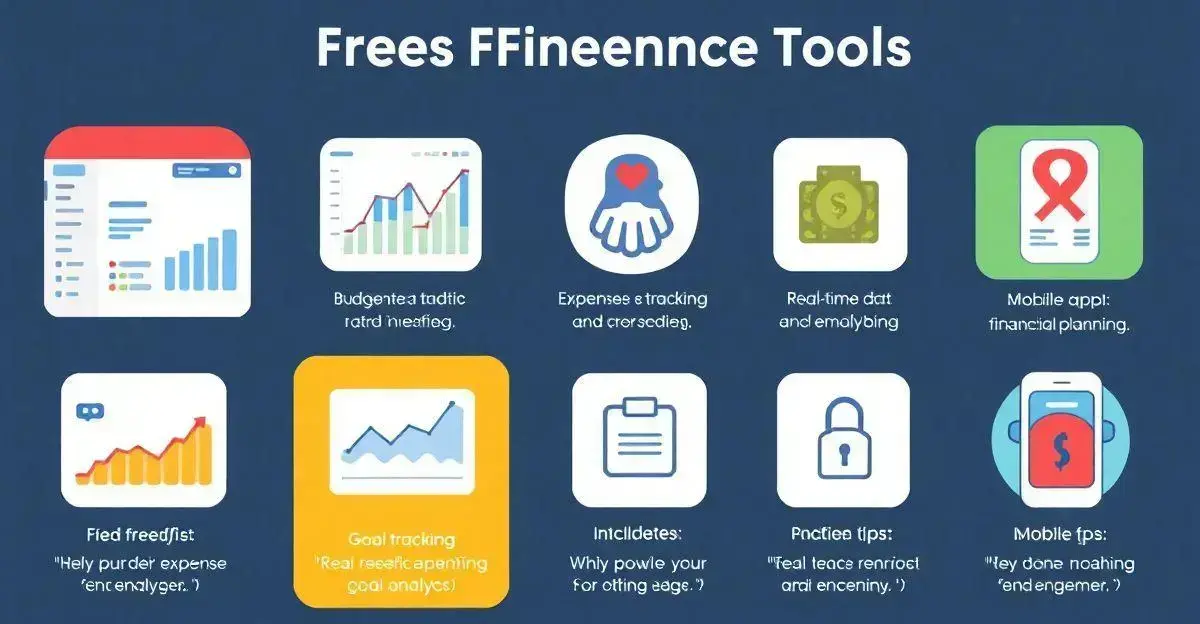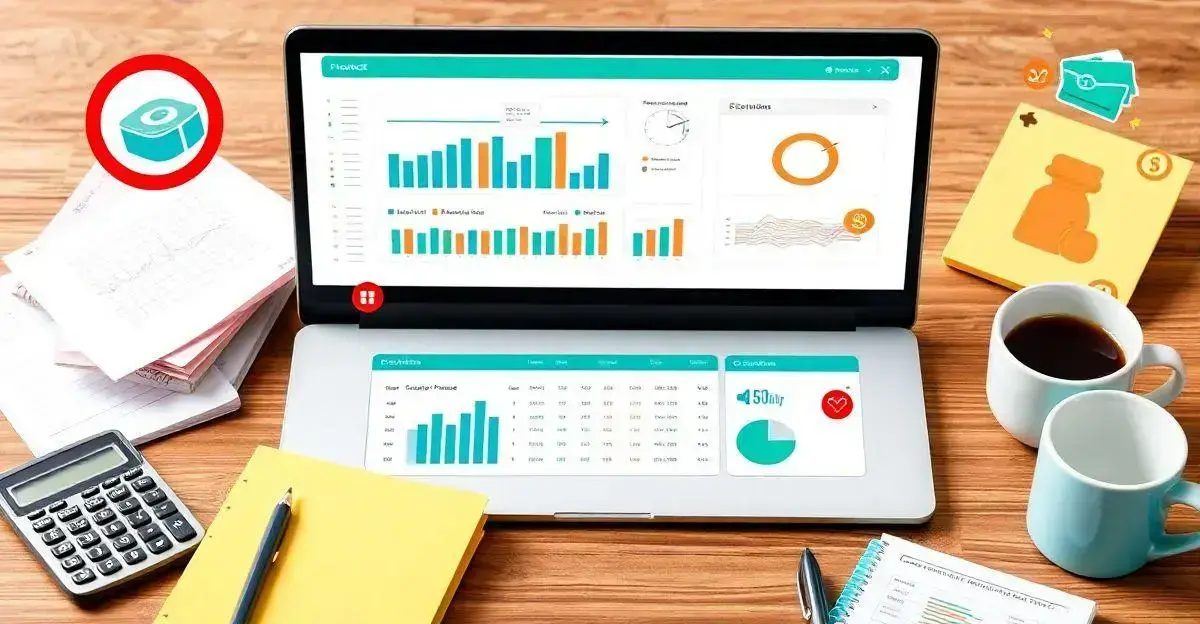Best Free Personal Finance Software to Boost Your Finances
Unlock your financial potential with the top free personal finance software available today. Managing your finances effectively can be challenging, but using the right tools can simplify this process.
Understanding Personal Finance Software
Understanding personal finance software is crucial for anyone looking to manage their money wisely. Personal finance software helps you track your income, expenses, budgeting, and savings in one place. These tools are designed to simplify your financial management and provide insights into your spending habits.
Many people face challenges when trying to keep track of various accounts and bills. With personal finance software, you can integrate multiple bank accounts to view your complete financial picture. This integration allows for real-time updates, so you always know how much money you have available.
Additionally, these tools often come equipped with budgeting features that enable you to set spending limits across different categories such as groceries or entertainment.
By sticking to these budgets, users can prevent overspending and work towards savings goals. Moreover, many programs provide reports and visualizations that highlight your financial trends, making it easier to identify areas for improvement.
Most importantly, personal finance software can help you plan for the future, whether it’s saving for a vacation, paying off debt, or preparing for retirement.
Many applications offer goal setting features, which motivate users to reach their financial aspirations. Investing time in understanding and utilizing these tools can significantly enhance your financial literacy and overall financial health.
Key Features of Free Finance Tools

When exploring free finance tools, understanding their features is key to optimizing your financial management. These tools often include functionalities like budgeting, expense tracking, and report generation, making it easier to monitor finances and plan effectively.
Budgeting is one of the most valuable features. It helps users allocate income across categories like dining, shopping, and entertainment, preventing overspending and promoting savings. Setting spending limits ensures better control over your finances.
Expense tracking is another essential component. Many tools allow users to link bank accounts and credit cards, automatically categorizing spending. This provides a clear view of where your money is going and helps identify areas for adjustment.
Report generation is equally important. Visual representations like graphs and charts offer insights into financial habits over time, empowering users to make informed decisions for the future.
Additionally, some tools include features like debt tracking and goal setting, enabling users to manage outstanding debts and establish savings targets. Incorporating these features into your financial routine can boost motivation and provide clarity, helping you stay on track toward your financial goals.
Top Free Personal Finance Software Options
There are several top free personal finance software options available, each offering unique features to cater to different financial needs. First on the list is Mint, a popular tool that helps track spending, create budgets, and provides an overview of all financial accounts in one place. Users love its user-friendly interface and easy integration with bank accounts.
Another excellent option is YNAB (You Need A Budget), which focuses on helping users allocate every dollar and save for upcoming expenses. It encourages proactive budgeting and offers educational resources to improve financial literacy.
Personal Capital stands out for its investment tracking capabilities, making it suitable for users looking to manage investments alongside daily finances. It provides tools to analyze investments, track net worth, and plan for retirement.
GoodBudget is also worth mentioning, as it allows users to implement the envelope budgeting method digitally. It is easy to use and helps users prioritize their spending based on preset categories.
Lastly, EveryDollar offers a straightforward approach to budgeting and is based on the principles of zero-based budgeting. Users can quickly create and track budgets each month.
These tools not only streamline financial management but also empower users to make informed decisions about their money. By exploring these top options, users can find the software that aligns best with their financial goals.
How to Evaluate Personal Finance Software

Evaluating personal finance software is essential for choosing the right tool for your needs. First, consider the ease of use. A user-friendly interface allows you to navigate the software without confusion. Look for programs that offer clear instructions and intuitive features.
Next, you should assess the features offered by each tool. Key functionalities like budgeting, expense tracking, and reporting are very important. Make sure that the software supports the financial tasks you want to manage.
Another important factor is security. Since you will be inputting sensitive financial information, ensure that the software uses encryption and has a good reputation for protecting user data.
Also, check for customer support options. Good customer service can make a big difference if you encounter issues while using the software. Look for tools with accessible support through chat, email, or phone.
Lastly, consider cost. While you may be looking for free options, some software may have hidden fees or premium features that involve subscriptions. Review any terms related to additional costs before committing.
By evaluating these factors—ease of use, features, security, customer support, and cost—you can make an informed decision about which personal finance software is best suited for your financial needs.
Benefits of Using Personal Finance Software
AI can provide numerous benefits for personal finance management, enhancing budgeting, saving time, improving financial awareness, offering debt management tools, and providing educational resources.
Enhanced budgeting allows users to set and track budgets, helping them stick to their financial goals.
Time-saving features automate tasks such as bill payments and expense tracking, allowing users to spend less time managing finances.
Improved financial awareness provides clear visuals and reports to better understand financial situations, leading to smarter spending decisions.
Debt management tools help users create plans to pay down loans or credit card balances, reducing interest costs.
Educational resources offer guides and articles that improve knowledge about personal finance topics.
Hidden Costs of Free Finance Tools

While free finance tools offer several advantages, users should be aware of the hidden costs that might arise.
Issues include:
- Lack of features: Many essential functionalities that come with paid options may not be available, limiting your ability to manage finances effectively.
- Data limitations: Some free tools may not store your financial data for an extended period, resulting in the loss of valuable financial history.
- Advertisements: Free tools often rely on ads which can be distracting and may share your data with third parties.
- Limited support: If issues arise, users may struggle to find assistance, leading to frustration.
- Associated costs: There may be costs for premium features or add-ons that could be necessary later.
Getting Started with Your Chosen Software
Getting started with your chosen personal finance software is an important step to managing your finances effectively. First, download and install the application or sign up for the web version. Many tools offer tutorials to help you understand the features available.
Once you have access, the next step is to link your bank accounts. This might involve securely entering your login details, which should be encrypted to protect your privacy.
After linking accounts, you can set up budgets based on your financial goals, which the software will help track over time.
It’s also a good idea to explore educational resources provided by the software, which can enhance your understanding of personal finance topics.
Don’t forget to regularly update your financial information and review your progress towards your goals.
With these steps, you’ll be on your way to effectively managing your money with your chosen software!
Maintaining Financial Health with Software

Personal finance software has become an essential tool for managing finances effectively. By utilizing features like budgeting, expense tracking, and goal setting, users can gain a comprehensive view of their financial situation. These tools help identify spending patterns, allocate resources wisely, and ensure that financial goals remain achievable.
Regularly updating and reviewing financial data within the software is crucial for staying on track. Consistent engagement allows users to adapt to changes in income or expenses, ensuring a proactive approach to financial health. This habit not only improves financial stability but also fosters a sense of control over one’s economic future.
Choosing the right software that aligns with personal financial needs is equally important. Understanding the features and potential costs of various tools ensures that they provide value while supporting long-term goals. With the right software and a committed approach, maintaining financial health becomes a more structured and manageable task.
Maximizing Personal Finance Software for Financial Success
Using personal finance software effectively can greatly enhance your financial management. By leveraging tools for budgeting, expense tracking, and goal setting, you can gain better control over your finances.
Additionally, understanding the hidden costs and benefits associated with free finance tools will help you make informed decisions that align with your financial objectives.
As you get started, remember that maintaining regular updates and reviews of your financial data is crucial. Staying engaged with your personal finance software means you are taking a proactive approach to your financial health.
With the right tools and strategies, you can unlock your potential to achieve financial success and stability.
